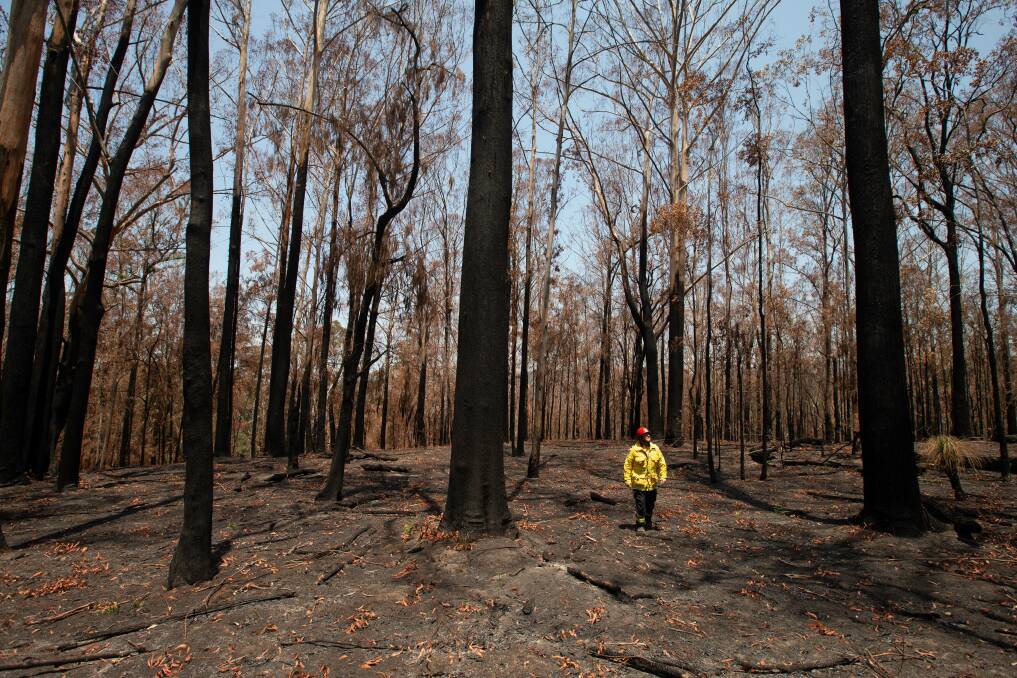
With Saturday set to be another scorcher and no end in sight to the bushfires and smoke affecting the Hunter and elsewhere, many people are invariably concerned about the climate.
Subscribe now for unlimited access.
or signup to continue reading
We're concerned about the firefighters and farmers and those whose homes and lives are threatened by fire and drought.
Some of us are concerned about the damage to our health from repeated exposure to hazardous air.
The concerns we're living with are local and global. The enormity of the bushfires and the extent of the drought has some worried for the future of Australia. For others, the future of the planet is increasingly occupying their thoughts.
The introduction in January of Level 2 water restrictions in the Lower Hunter means there's worry about water at the local level.
In Gloucester, the town's water looks set to run out.
The town gets its water from the Barrington River, which is close to running dry.
"The Barrington River has never ceased flowing in recorded history," Mid Coast Council's Adrian Panuccio said.
On Wednesday, members of the Barrington Coast community packed a church hall for an update on climate change and the "ecological emergency facing our planet".
The event was organised by a local activist offshoot of the global group Extinction Rebellion.
Professor Chris Turney, a climate change and earth scientist at University of New South Wales, spoke at the event about the history of climate science. He explained how rising carbon dioxide levels, mainly from the burning of fossil fuels, were warming the Earth's atmosphere.
The consequences of this, which many have warned about for decades, included "more natural disasters, more frequent and intense droughts and bushfires, rising sea levels and ocean acidity".
"The cost of one degree warming is already substantial, with huge economic losses and loss of lives," he said.
He added that the complete decarbonisation of the global economy was necessary by 2050 to avoid or at least mitigate two degrees of warming. The two degrees level represented a tipping point into a cascade effect and a point of no return.
"The costs of inaction are eye-watering. We have to restructure completely and be on a war footing. Doing nothing is just not an option," he said.
For many, the extreme drought, fires and heat we're experiencing now were meant to be something that would happen in the future. But the future is here.
Many believe the Morrison government is not doing enough to deal with the climate change issue. But governments won't enact change until more people change their stance on the issue at the ballot box. Will the extreme events we're now experiencing be a catalyst for such change?
ISSUE: 39,483.

